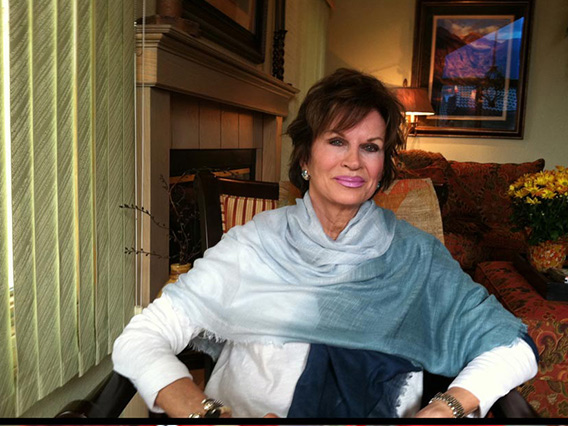[vc_row][vc_column][vc_column_text] Newly married in 1959 at age eighteen, Glenda Anderson began to experience what she had craved for years: security, provided by her husband, Paul, a powerful man of well over 300 pounds. In 1956 he had become an Olympic gold medalist; to this day he is the last American to win in the heavyweight (now super heavyweight) division. In 1957 he made the Guinness Book of World Records, cited for the greatest lift by a human being, “6,270 pounds in a back lift.” Glenda found in him a delightful source of strength, and wisdom besides. He was her protector, who gave her freedom from care and anxiety.
Newly married in 1959 at age eighteen, Glenda Anderson began to experience what she had craved for years: security, provided by her husband, Paul, a powerful man of well over 300 pounds. In 1956 he had become an Olympic gold medalist; to this day he is the last American to win in the heavyweight (now super heavyweight) division. In 1957 he made the Guinness Book of World Records, cited for the greatest lift by a human being, “6,270 pounds in a back lift.” Glenda found in him a delightful source of strength, and wisdom besides. He was her protector, who gave her freedom from care and anxiety.
Glenda had grown up in an unstable home. She felt loved by her parents and credits them with building her character and teaching her to respect God, others, and herself. “As a little girl, I was taught John 3:16 by my mother. From the time that I can remember, every Sunday, I attended Sunday School and church. Because of this, I grew up knowing about Jesus and believing in Him. Occasionally, alcohol turned my parents into quarrelling, unloving people,” she recalls. “When I was nine, my mother, during the heat of an argument with my father, turned a gun on herself, which resulted in her death a few days later.”
“After she passed away, my father made sure that I always attended Sunday School and church. Although I never saw him darken a church door, if he did not personally take me to Sunday School and church, he made sure that someone did.” Glenda’s father soon married a woman nineteen years his junior. Though kind to her stepdaughter, she was not a nurturer. Glenda’s paternal grandmother, an austere woman who made sure her granddaughter was in church on Sundays, tried but fell shy of giving her needed motherly love. Her grandmother’s death when Glenda was eleven left another void in her life.
Lonely in her early teens, Glenda persuaded her father to allow her to join a girlfriend at a boarding school in the mountains of northeastern Georgia, near her hometown, Toccoa. During the summer when she was thirteen years old, she made a public profession of faith in Christ and was baptized. These were good years. Here, teachers gave her a grasp of etiquette, qualities of leadership, as well as how to keep her room in order, how to prepare food, and how to set a table.
She tells one on herself. “I was taught to politely address those my senior with ‘Yes, sir’ and ‘No, sir.’ Before Paul, a twenty-six-year-old celebrity in our area came to date me the first time (I was only seventeen), my daddy cautioned me not to address Paul in that formal manner. Otherwise, I would have!”
All her training proved especially valuable when, after their marriage, she and Paul opened the Paul Anderson Youth Home in 1961 in Vidalia, Georgia (home of Vidalia onions), some 200 miles southeast of Atlanta. They began ministering to wayward girls (later only boys), and “my boarding school background prepared me to answer God’s call,” Glenda says.
Today, on a fifty-acre campus in the impressive white colonial structure that houses the Paul Anderson Youth Home (PAYH), she oversees a family of up to twenty young men between the ages of sixteen and twenty-one. Most have been in trouble with the law and are court ordered. She has headed the ministry since her husband’s death in 1994 following thirteen years of health difficulties. Some of her young family have jokingly accused their surrogate mother of making the PAYH a “finishing school.”
Indeed, Glenda strives to equip her boys well before they graduate. They get schooling and more. “I want them to know how to function in any social setting, to be “givers” rather than “takers,” men with a strong work ethic,”she says. “My chief aim is to send each graduate out knowing Christ, the Savior I met in my early teens.”
For a two-year period prior to the writing of this article, not one graduate of the Paul Anderson Youth Home had encountered a run-in with the law. For the previous ten years, records showed a 94 percent success rate. However, “Success to me in the ultimate sense means that someday we will see them in heaven,” adds Glenda Anderson, who in 1999 was honored as recipient of The Christian Citizenship Award given by The Georgia Council on Moral and Civic Concerns.
As Paul’s illness began to escalate in the mid-’70s, other burdens weighed on Glenda. Her father, a big man weakened by several strokes, took his life. Two years later her stepmother and Paul’s mother developed cancer, and their care became a concern. Both died within three months of each other.
“That period was a most difficult time for me, but God, as it were, put me in a cocoon, and I envisioned a wall of heavy insulation around me; people would call it shock, but I believe it was God’s way of protecting me,” she reveals. “Day by day I would feel a little of the pain creeping in, but it was not unbearable.”
Even during the years when illness plagued Paul, she continued to savor the strength and security that he gave her, but she learned more and more to reach for divine help as his condition worsened. Bright’s Disease that attacked his kidneys during childhood eventually made it impossible for him to perform his weightlifting feats to raise money for the PAYH. In 1981 he was told he had end-stage renal failure. His strength drained from his body as his weight plummeted from 300 plus pounds to 160. He was in and out of hospitals battling kidney stones and peritonitis, and was on dialysis. In 1983 he underwent a kidney transplant, receiving a kidney from his sister, Dorothy Johnson. His strength returned to a remarkable degree but soon became “a modern-day Job.”
Looking back, Glenda recalls that both she and Paul had to live a day at a time during his illness. “I watched him suffer. It is kind of like: ‘I made it through yesterday, and God will get me through today.’ Many days I thought it might be Paul’s last,” Glenda says. Until we are faced with problems, we will not know the power of the Lord in us; however, when we are tempered by the fire, we begin to realize what we can endure.
“Whereas my personal relationship with Christ was not deeply rooted in the early years of our ministry, I began to understand abundant living as I had to depend on God more and more and on Paul less and less. There were times I could only go to my knees. Many of the Psalms lifted me up such as: ‘The Lord is my rock, and my fortress, and my deliverer; my God, my strength, in Whom I will trust; my buckler, and the horn of my salvation, and my high tower’ (Psalm 18:2).”
During Paul’s lengthy illness, Glenda felt insecure in communicating the needs of the PAYH in letters written over Paul’s signature. “I called on God, and He wrote the letters for me, and He still does,” she declares.
Once the PAYH faced a debt of $80,000, and Glenda saw no way that their relatively few faithful supporters could meet the crisis need. She credits the Holy Spirit for causing the ministry’s board chairman to pop in at just the right time and ask about the PAYH financial situation. Her reply prompted him to write a check for the entire amount.
As she watched Paul suffer in the summer of 1994, Glenda knew every day was a possibility of him leaving her. In the early morning hours of Monday, August 15, she realized he was near death and called 911. Their daughter, Paula, waited on the porch of the big white house for the ambulance. Later she told her mother that a cloud hovered just over her head. Then the cloud moved away. “Mama, I knew that this cloud was taking my precious daddy’s soul to heaven,” she said.
Though the insulation that God had provided had kept Glenda during Paul’s long illness, in November she realized she was battling depression. “I felt totally abandoned. My protector wasn’t there anymore,” recalls Glenda. “But, of course, God wanted me to learn that we cannot depend on any man, that only Jesus will be with us forever and will surround us.
“God has been so faithful to our ministry. A man came into my life several years ago, and we cared very much about each other. Before he died suddenly of a heart attack, through his wise suggestion I created a position of administrator to help carry the load. In leading me to make this decision, I see my Abba Father’s provision. This chapter in my life parallels Exodus 18 that tells of God sending Jethro, Moses’ father-in-law, to show him a better way to lead through delegation.”
Now the Paul Anderson Youth Home is fully staffed, with twenty-one workers carrying out the program. Why, some ask, does not the PAYH care for more than a maximum of twenty boys? “We have never felt God called us to work as a big institution,” Glenda explains. “It is our desire to pour our lives into these young men; it would be difficult to do that with, say, fifty.
“My constant prayer is that God will have His angels surround this campus with their swords drawn, and that His Holy Spirit will protect us from the enemy. As long as we make Jesus Christ the foundation of this work, the enemy is going to battle us.”
Glenda Anderson knows that the battle is the Lord’s. She cannot win it herself. She–echoing what her Samson-like husband often said of himself in his prime–lives by 2 Corinthians 12:9-10: “My grace is sufficient for thee, for My strength is made perfect in weakness. . . . Therefore I take pleasure in infirmities . . . for Christ’s sake, for when I am weak, then am I strong.”
Glenda had grown up in an unstable home. She felt loved by her parents and credits them with building her character and teaching her to respect God, others, and herself. “As a little girl, I was taught John 3:16 by my mother. From the time that I can remember, every Sunday, I attended Sunday School and church. Because of this, I grew up knowing about Jesus and believing in Him. Occasionally, alcohol turned my parents into quarrelling, unloving people,” she recalls. “When I was nine, my mother, during the heat of an argument with my father, turned a gun on herself, which resulted in her death a few days later.”
“After she passed away, my father made sure that I always attended Sunday School and church. Although I never saw him darken a church door, if he did not personally take me to Sunday School and church, he made sure that someone did.” Glenda’s father soon married a woman nineteen years his junior. Though kind to her stepdaughter, she was not a nurturer. Glenda’s paternal grandmother, an austere woman who made sure her granddaughter was in church on Sundays, tried but fell shy of giving her needed motherly love. Her grandmother’s death when Glenda was eleven left another void in her life.
Lonely in her early teens, Glenda persuaded her father to allow her to join a girlfriend at a boarding school in the mountains of northeastern Georgia, near her hometown, Toccoa. During the summer when she was thirteen years old, she made a public profession of faith in Christ and was baptized. These were good years. Here, teachers gave her a grasp of etiquette, qualities of leadership, as well as how to keep her room in order, how to prepare food, and how to set a table.
She tells one on herself. “I was taught to politely address those my senior with ‘Yes, sir’ and ‘No, sir.’ Before Paul, a twenty-six-year-old celebrity in our area came to date me the first time (I was only seventeen), my daddy cautioned me not to address Paul in that formal manner. Otherwise, I would have!”
All her training proved especially valuable when, after their marriage, she and Paul opened the Paul Anderson Youth Home in 1961 in Vidalia, Georgia (home of Vidalia onions), some 200 miles southeast of Atlanta. They began ministering to wayward girls (later only boys), and “my boarding school background prepared me to answer God’s call,” Glenda says.
Today, on a fifty-acre campus in the impressive white colonial structure that houses the Paul Anderson Youth Home (PAYH), she oversees a family of up to twenty young men between the ages of sixteen and twenty-one. Most have been in trouble with the law and are court ordered. She has headed the ministry since her husband’s death in 1994 following thirteen years of health difficulties. Some of her young family have jokingly accused their surrogate mother of making the PAYH a “finishing school.”
Indeed, Glenda strives to equip her boys well before they graduate. They get schooling and more. “I want them to know how to function in any social setting, to be “givers” rather than “takers,” men with a strong work ethic,”she says. “My chief aim is to send each graduate out knowing Christ, the Savior I met in my early teens.”
For a two-year period prior to the writing of this article, not one graduate of the Paul Anderson Youth Home had encountered a run-in with the law. For the previous ten years, records showed a 94 percent success rate. However, “Success to me in the ultimate sense means that someday we will see them in heaven,” adds Glenda Anderson, who in 1999 was honored as recipient of The Christian Citizenship Award given by The Georgia Council on Moral and Civic Concerns.
As Paul’s illness began to escalate in the mid-’70s, other burdens weighed on Glenda. Her father, a big man weakened by several strokes, took his life. Two years later her stepmother and Paul’s mother developed cancer, and their care became a concern. Both died within three months of each other.
“That period was a most difficult time for me, but God, as it were, put me in a cocoon, and I envisioned a wall of heavy insulation around me; people would call it shock, but I believe it was God’s way of protecting me,” she reveals. “Day by day I would feel a little of the pain creeping in, but it was not unbearable.”
Even during the years when illness plagued Paul, she continued to savor the strength and security that he gave her, but she learned more and more to reach for divine help as his condition worsened. Bright’s Disease that attacked his kidneys during childhood eventually made it impossible for him to perform his weightlifting feats to raise money for the PAYH. In 1981 he was told he had end-stage renal failure. His strength drained from his body as his weight plummeted from 300 plus pounds to 160. He was in and out of hospitals battling kidney stones and peritonitis, and was on dialysis. In 1983 he underwent a kidney transplant, receiving a kidney from his sister, Dorothy Johnson. His strength returned to a remarkable degree but soon became “a modern-day Job.”
Looking back, Glenda recalls that both she and Paul had to live a day at a time during his illness. “I watched him suffer. It is kind of like: ‘I made it through yesterday, and God will get me through today.’ Many days I thought it might be Paul’s last,” Glenda says. Until we are faced with problems, we will not know the power of the Lord in us; however, when we are tempered by the fire, we begin to realize what we can endure.
“Whereas my personal relationship with Christ was not deeply rooted in the early years of our ministry, I began to understand abundant living as I had to depend on God more and more and on Paul less and less. There were times I could only go to my knees. Many of the Psalms lifted me up such as: ‘The Lord is my rock, and my fortress, and my deliverer; my God, my strength, in Whom I will trust; my buckler, and the horn of my salvation, and my high tower’ (Psalm 18:2).”
During Paul’s lengthy illness, Glenda felt insecure in communicating the needs of the PAYH in letters written over Paul’s signature. “I called on God, and He wrote the letters for me, and He still does,” she declares.
Once the PAYH faced a debt of $80,000, and Glenda saw no way that their relatively few faithful supporters could meet the crisis need. She credits the Holy Spirit for causing the ministry’s board chairman to pop in at just the right time and ask about the PAYH financial situation. Her reply prompted him to write a check for the entire amount.
As she watched Paul suffer in the summer of 1994, Glenda knew every day was a possibility of him leaving her. In the early morning hours of Monday, August 15, she realized he was near death and called 911. Their daughter, Paula, waited on the porch of the big white house for the ambulance. Later she told her mother that a cloud hovered just over her head. Then the cloud moved away. “Mama, I knew that this cloud was taking my precious daddy’s soul to heaven,” she said.
Though the insulation that God had provided had kept Glenda during Paul’s long illness, in November she realized she was battling depression. “I felt totally abandoned. My protector wasn’t there anymore,” recalls Glenda. “But, of course, God wanted me to learn that we cannot depend on any man, that only Jesus will be with us forever and will surround us.
“God has been so faithful to our ministry. A man came into my life several years ago, and we cared very much about each other. Before he died suddenly of a heart attack, through his wise suggestion I created a position of administrator to help carry the load. In leading me to make this decision, I see my Abba Father’s provision. This chapter in my life parallels Exodus 18 that tells of God sending Jethro, Moses’ father-in-law, to show him a better way to lead through delegation.”
Now the Paul Anderson Youth Home is fully staffed, with twenty-one workers carrying out the program. Why, some ask, does not the PAYH care for more than a maximum of twenty boys? “We have never felt God called us to work as a big institution,” Glenda explains. “It is our desire to pour our lives into these young men; it would be difficult to do that with, say, fifty.
“My constant prayer is that God will have His angels surround this campus with their swords drawn, and that His Holy Spirit will protect us from the enemy. As long as we make Jesus Christ the foundation of this work, the enemy is going to battle us.”
Glenda Anderson knows that the battle is the Lord’s. She cannot win it herself. She–echoing what her Samson-like husband often said of himself in his prime–lives by 2 Corinthians 12:9-10: “My grace is sufficient for thee, for My strength is made perfect in weakness. . . . Therefore I take pleasure in infirmities . . . for Christ’s sake, for when I am weak, then am I strong.”
by James R. Adair[/vc_column_text][/vc_column][/vc_row]
Stay Updated
Sign up for our monthly newsletter and weekly devotional










